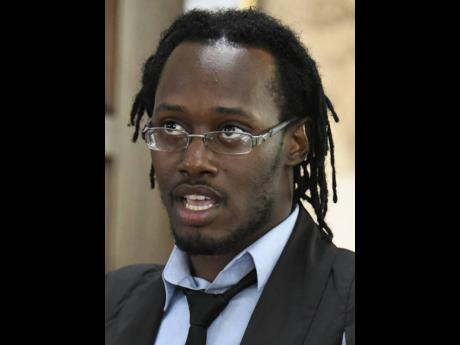LGBT advocate praises Loyal stance on homophobia
Jamaica Forum for Lesbians, All-Sexuals and Gays Director of Programmes and Impact, Glenroy Murray, says more teams should take United Soccer League (USL) side San Diego Loyal’s approach in dealing with homophobia in sports.
The Loyal walked off the field, forfeited their USL game on Wednesday night, after alleging that Collin Martin, an openly gay footballer, was abused with a Jamaican homophobic slur by Phoenix Rising’s Jamaican striker Junior Flemmings.
Flemmings denied the allegation after the game, on social media, saying he stands in support of the LGBTQ+ (lesbian, gay, bisexual, transgendered, queer, and other marginalised sexual orientations) community.
“If he, indeed, did what they say he did, then it was a principled stance to take,” Murray told The Gleaner. “If it was a racial slur that was used, as has happened in football in the US and the UK, and there have been demonstrations against them, then we wouldn’t be having this conversation. So we understand what is problematic about racial slurs.
STANDING AGAINST INJUSTICE
“That the team of Collin Martin, opted in favour of their player, is something that should be celebrated. We should see more sports teams standing against different forms of social injustice, whether it is race, sexual orientation, gender identity, or anything of the sort.”
Murray, while acknowledging that Flemmings is innocent until proven guilty of the allegation, says it is not a shock that homophobia exists within the black community.
“The reality is that marginalisation doesn’t just happen in one way,” he said. “There are communities within communities. In Jamaica, we’re a majority black society but homophobia exists here, just like how in America, there’s homophobia in the black community, that’s not a surprise at all. It’s something that is well documented.”
Murray says that a way to move towards less discrimination in society is for various marginalised communities to open dialogue with each other, to understand the differing perspectives on discrimination.
“A part of the work that we need to do is not expect that persons in marginalised communities will understand another person who faces a different kind of marginalisation experience,” he said. “There needs to be more work between the LGBT community and the black community, which will be facilitated by black queer people bringing those two communities together to work on their issues. Just like how there’s homophobia, within our black community, there is racism within the gay community. It’s a lot of work to be done on either side.”

